Business Activity || How To Choose The Right Size Generator || 10% Payout To @businessactivity
So you've made the decision to purchase a generator. Generators are an excellent way to provide power during blackouts and to offer power to areas where there is no access to electricity. A generator would be an excellent device to add if you're undergoing a home remodeling and are rethinking a few things. The next consideration is how big and what kind of generator you'll need. This article will assist you in determining the answer.
When choosing a generator, the first thing to consider is the wattage. Add up the watts of everything you'll need to power with your generator, whether it's during a power outage or in a location with little or no electricity. Lights, a refrigerator, a laptop charger, a smartphone charger, a coffee maker, a toaster oven, a washing machine, and other items may be included. This calculation will give you an estimate of the generator size you'll require.
Keep in mind that some appliances (such as air conditioners and refrigerators) use a lot more power when they're turned on than when they're turned off. In order to achieve the most accurate estimate, you'll want to account for such surges in wattage while doing your calculations.
There are a few key specifications to comprehend when it comes to generators, regardless of kind. Starting watts, operating watts, and surge watts are the three types of watts.
The power that a generator can give for a few seconds to start a motor is referred to as starting watts. The term "surge watts" is also used to describe this. The power that the generator can supply at all times is measured in running watts. The term "constant watts" is frequently used to describe this. Watts, AMPs, and Volts: What's the Difference?
There are a few key specifications to comprehend when it comes to generators, regardless of kind. Starting watts, operating watts, and surge watts are the three types of watts.
Recreational Inverter
This is the lightest form of generator, with a power output of up to 2,000 watts, a price range of N100,000 to N150,000 and a weight of roughly 60 pounds. It's silent, doesn't require any setup, and is meant to be portable. Inverters for recreational usage are often user-friendly, with many versions including smartphone applications.
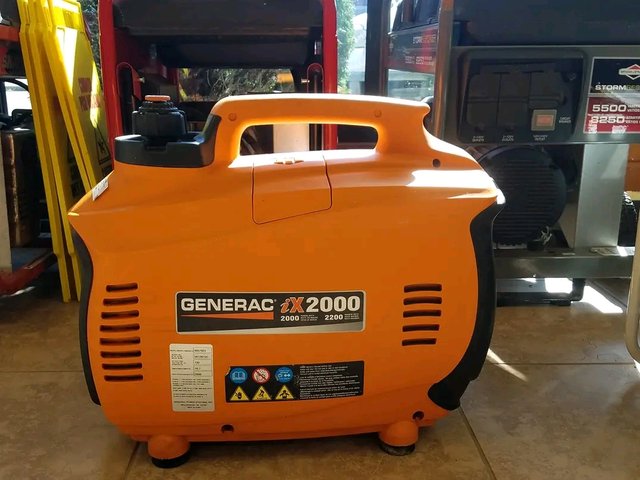
Keep in mind that, while recreational inverters can cost as much as portable generators, they provide far less power, capable of only powering a refrigerator, lights, and small devices. If you're on the move, if your home seldom loses electricity, or if you want something portable, a recreational inverter is a good option.
Mid-Sized Inverter
This generator lives up to its moniker, with up to 3,500 watts, a price range of N200,000 to N300,000, and a weight of 150 pounds or less. It's lightweight and quiet, much like a recreational inverter, but it can handle a lot more power. On two to three tanks of gas, a mid-sized inverter can keep a refrigerator and lights going for eight to 18 hours.
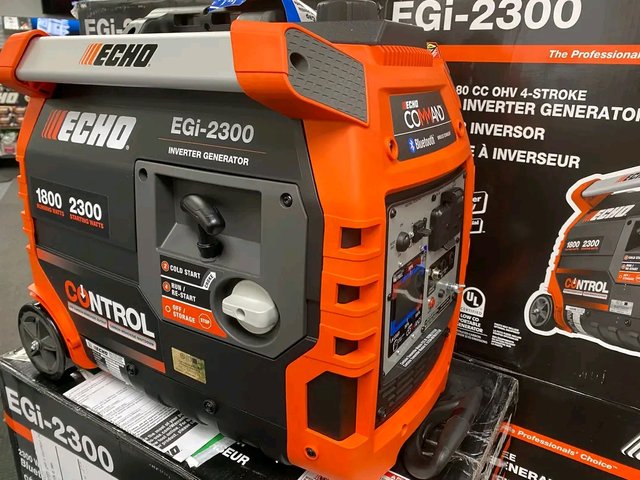
However, a mid-sized inverter will not be able to power everything. Most versions can only power 110-volt goods with regular two- or three-prong plugs, so you'll have to search elsewhere if you need to power well pumps or heating and cooling equipment.
For individuals seeking for a backup power solution in a house with few blackouts, a mid-sized inverter generator is a perfect choice. Its capacity to power critical equipment for extended periods of time will put your mind at ease while keeping your household functioning smoothly.
Portable Generator
This generator is the greatest bargain, with a power output of up to 7,500 watts and a price range of N250,000 to N300,000. Be careful that the name of this generator may be deceiving, since most versions weigh in at over 300 pounds.
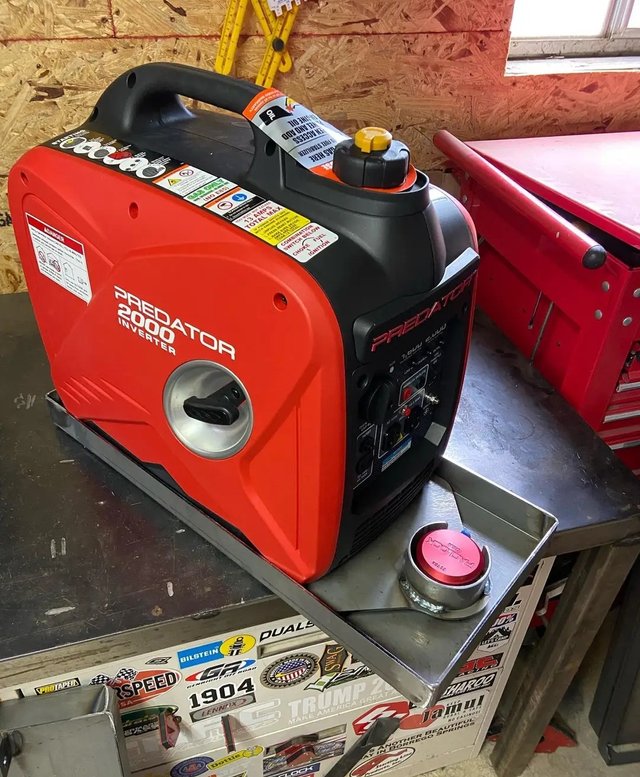 | 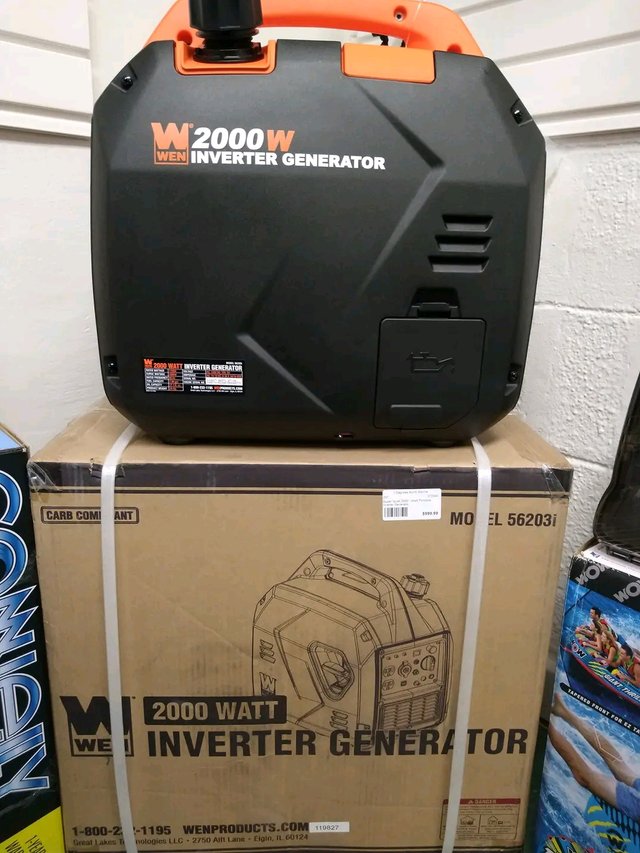 |
|---|
Many portable generators provide enough power to cover the needs of a typical household and may even be connected to a breaker panel to power hardwired equipment such as well pumps. It's worth noting, though, that connecting a portable generator to your home's circuit breaker might be as expensive as the generator itself.
It should also be emphasized that without adequate protection, portable generators should not be utilized in the snow or rain.
Portable generators are a fantastic alternative for houses that experience power outages on a regular basis; they are dependable and cost less than a thousand dollars.
Large Inverter
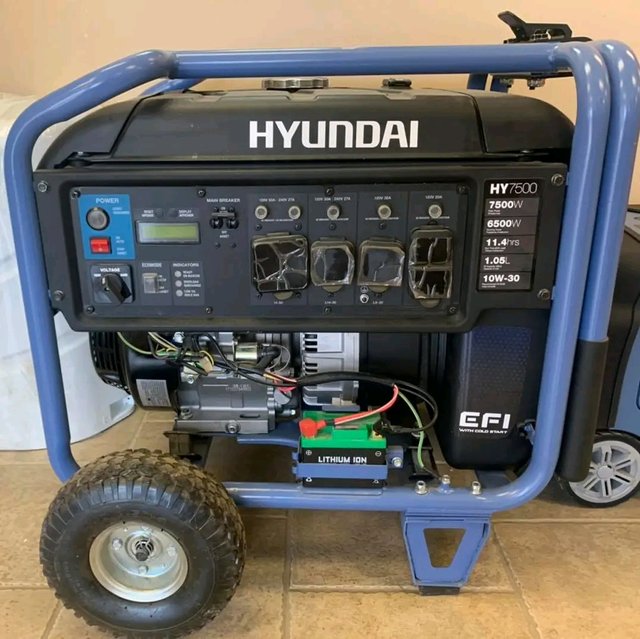
Large inverter generators, which can produce up to 7,500 watts, cost between N300,000 and N400,000, and weigh between 250 and 350 pounds or more, can power items like a refrigerator and even a small air conditioning unit. They're also quiet and fuel-efficient, delivering consistent power for more delicate gadgets.
Keep in mind that huge inverters, rather than natural gas or propane, run on stable gasoline.
Because of their dependability and capacity to power important appliances, large inverter generators are ideal for houses that endure frequent and/or protracted power outages.
Home Standby
Home standby generators are permanent generators that provide up to 20,000 watts of power, cost between N800,000 and N2,000,000, and weigh between 350 and 600 pounds. During a power outage, they'll automatically come on and deliver a constant stream of electricity to all of your appliances. Natural gas or propane are commonly used in these generators.
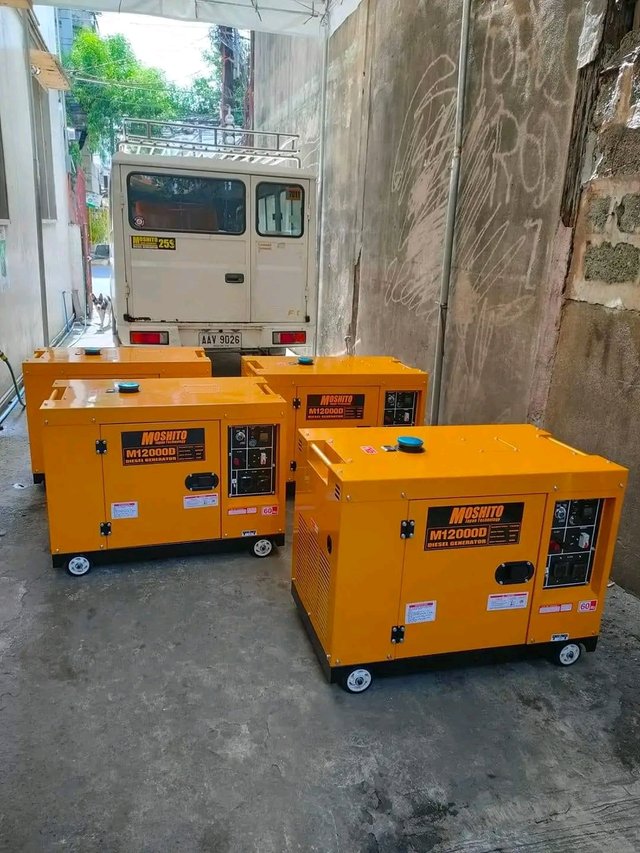
Keep in mind that, while this is the most handy sort of generator for household usage, it is also usually the most expensive. The cost of installing a home backup generator can be as much as the generator itself, making this a prohibitively expensive alternative for some.
If you reside in a flood-prone location, this is also not an option because home standby generators cannot be put in wet places or transported during a flood.
However, if you live in a region where power outages are often or you don't have access to electricity, a home or shop backup generator may be the most practical alternative for you.
| Business name: | Hdope Did It |
|---|---|
| Owner's name: | @lordhojay |
| Business address: | Ifako-Ijaiye, Lagos, Nigeria. |
| About us: | Link to presentation |

